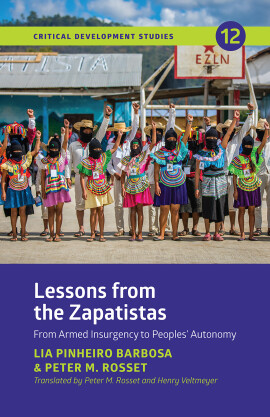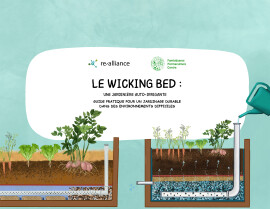
The Political Economy of Agribusiness
A Critical Development Perspective
This book analyzes global economic policies that impact rural communities, land use, food sovereignty and environmental justice. This is the 9th book in the Critical Development Studies series. It traces the global contours of contemporary agriculture, bringing a critical analysis of the origins of agribusiness in the US and its subsequent international signature. The investigation reveals that the industrialization of agriculture was a result of a dialectical movement of economic crisis and expansion, and the author's analysis sheds new light on current debates about food sovereignty, agriculture technologies, international financial markets and farmland speculation. For those who are new to the study of agribusiness, this book provides a clear introduction to global trends. For those more engaged, it serves as a valuable overview, an excellent text for students involved in studies of agriculture and food sovereignty.
Series: Critical Development Studies
Published: 2023
Pages: 165
eBook: 9781788532631
Paperback: 9781788532617
Hardback: 9781788532624
This book analyzes global economic policies that impact rural communities, land use, food sovereignty and environmental justice. This is the 9th book in the Critical Development Studies series. It traces the global contours of contemporary agriculture, bringing a critical analysis of the origins of agribusiness in the US and its subsequent international signature. The investigation reveals that the industrialization of agriculture was a result of a dialectical movement of economic crisis and expansion, and the author's analysis sheds new light on current debates about food sovereignty, agriculture technologies, international financial markets and farmland speculation. For those who are new to the study of agribusiness, this book provides a clear introduction to global trends. For those more engaged, it serves as a valuable overview, an excellent text for students involved in studies of agriculture and food sovereignty.
Critical Development Studies Series |
|||
|---|---|---|---|
Series Editors |
|||
Acknowledgments |
|||
Acronyms |
|||
Introduction |
|||
1 The Concept of Agribusiness |
|||
The Industrialization of Agriculture in the United States and the Expansion of World Trade |
|||
The International Standardization of Food |
|||
Economic and Geopolitical Contradictions in the Expansion of Agribusiness |
|||
The Internationalization of Agribusiness |
|||
Exporting the Agribusiness System to Latin America |
|||
The Concept of Agribusiness in Brazil |
|||
The Influence of “Evolutionary Economics” on the Concept of Agribusiness |
|||
Notes |
|||
2 Land as a Mechanism of Financial Accumulation |
|||
The Peasant Economy |
|||
The Industrialization of Agriculture |
|||
The Industrialization of Agriculture in Brazil |
|||
3 Socioeconomic Impacts of Financial Speculation and Land-Grabbing |
|||
International Financial Corporations and Land Speculation in Brazil |
|||
Land-Grabbing in the Cerrado |
|||
Financial Capital and Land Markets |
|||
4 The Myth of Agrofuels |
|||
Ethanol Production and Financial Speculation on Farmland |
|||
Access to International Markets and the Role of the State in Promoting Agrofuels |
|||
Social and Environmental Impacts of Ethanol Production |
|||
Labour Exploitation on Sugarcane Plantations |
|||
Rural Women and Grassroots Feminism |
|||
Looking at the Past to Change the Future |
|||
Conclusion |
|||
References |
|||
Index |
“The Political Economy of Agribusiness by Maria Luisa Mendonça is a brilliantly written small book about a huge issue confronting humanity: agribusiness — and how it causes social problems such as land grabbing, inequality and exploitation, and provokes resistance. It is a must-read for academics and activists alike.”
— Saturnino M. Borras Jr., International Institute of Social Studies (iss), Netherlands
“The concept of “agronegócio” is not just a translation of “agribusiness” to Portuguese. It has been a political construction, based on a narrative of modern technology, appropriation of public resources and concentration of land and wealth. Mendonça’s book critically explores this historical construction in dialogue with political economy and critical agrarian studies. A piece worth reading to better understand inequality, injustice, power relations and monopoly of wealth, as well as social resistance and land struggles in contemporary Brazil.”
— Sergio Sauer, professor of environment and rural development at the University of Brasilia (fup/unb) and faculty member of the Centre for Sustainable Development (cds) and master’s in Sustainability with Traditional Peoples and Lands





